Sørensens Piger
There is no denying that cycling, and especially road cycling, is a man-dominated sport. Therefore we are even happier whenever we get the chance to talk riding with inspiring ladies all around the world. Their message is always the same: more ladies should get on their bike! And they are here to help you get going. Meet the women who are changing the rules of road cycling in Oslo.
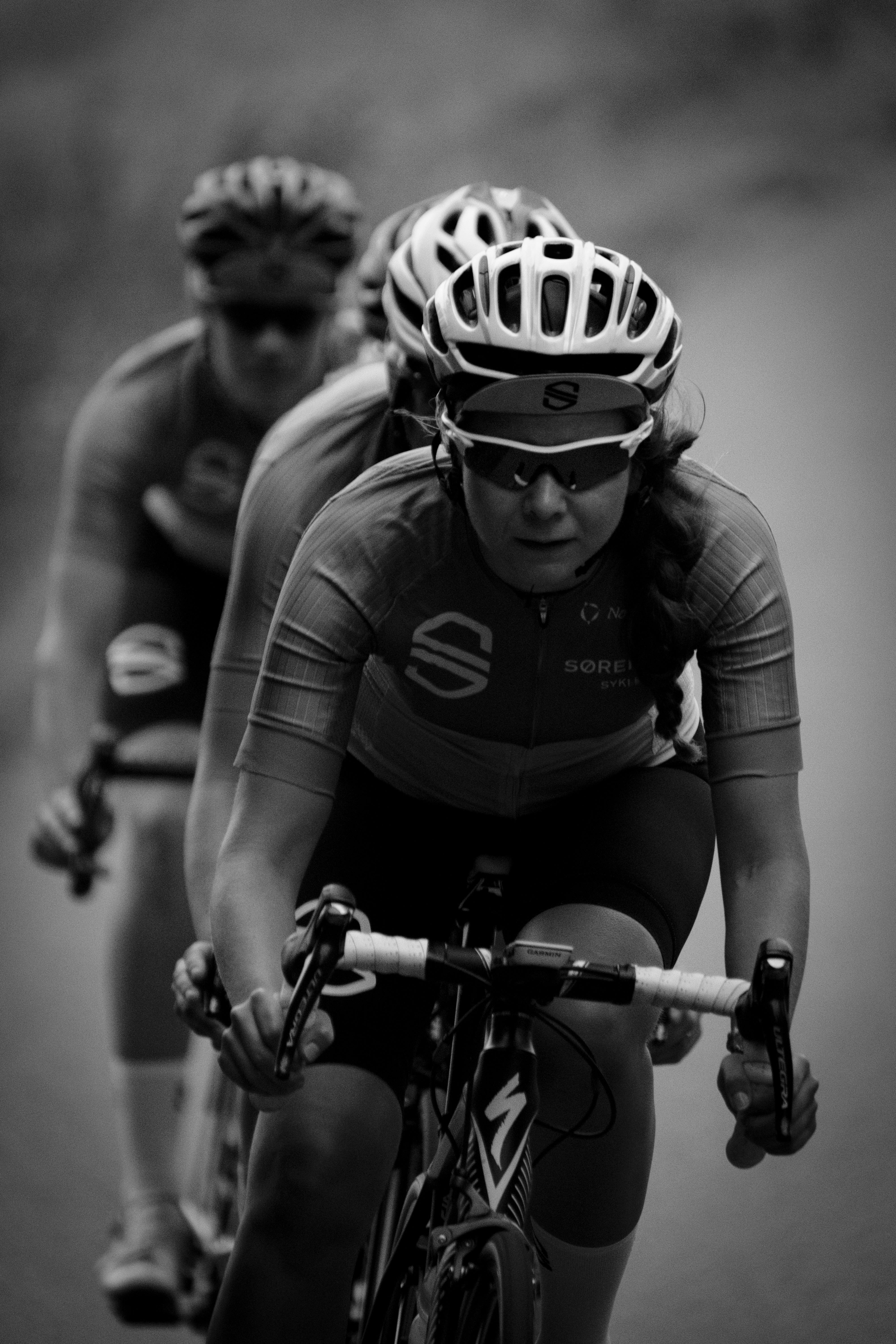
Text: Silje Strømmen
Photos: Pål Laukli
Søresens Piger first started riding together in May 2016. They’re not a team or a club, but rather an unformal arena for women who like to ride. They get together for shop-rides, always starting from the Oslo based shop Sørensens Sykler (hence the name), once a week. They call the rides “pleasure trips” and underlines that this is social riding. It is for fun, like riding should be. The gang first got together following the wish of Jonas Strømberg (pick up an edition of Bikevibe Oslo to read all about him) from Sørensens Sykler. Kirsti Ruud, Kristin Bærland, Line Marie Gulliksen and Tonje Øvervoll wanted an arena where it would be easier for other females to join the ride. A few months later the group-chat where riders are being organised have over 90 members.
Kristin Bærland 28 years old, from Oslo. Started riding five years ago and is riding her first season actively in 2016. Just finished riding NM and plans to ride actively for some time, before going back to ride on a hobby basis. Works in Renault Norway as an importer.
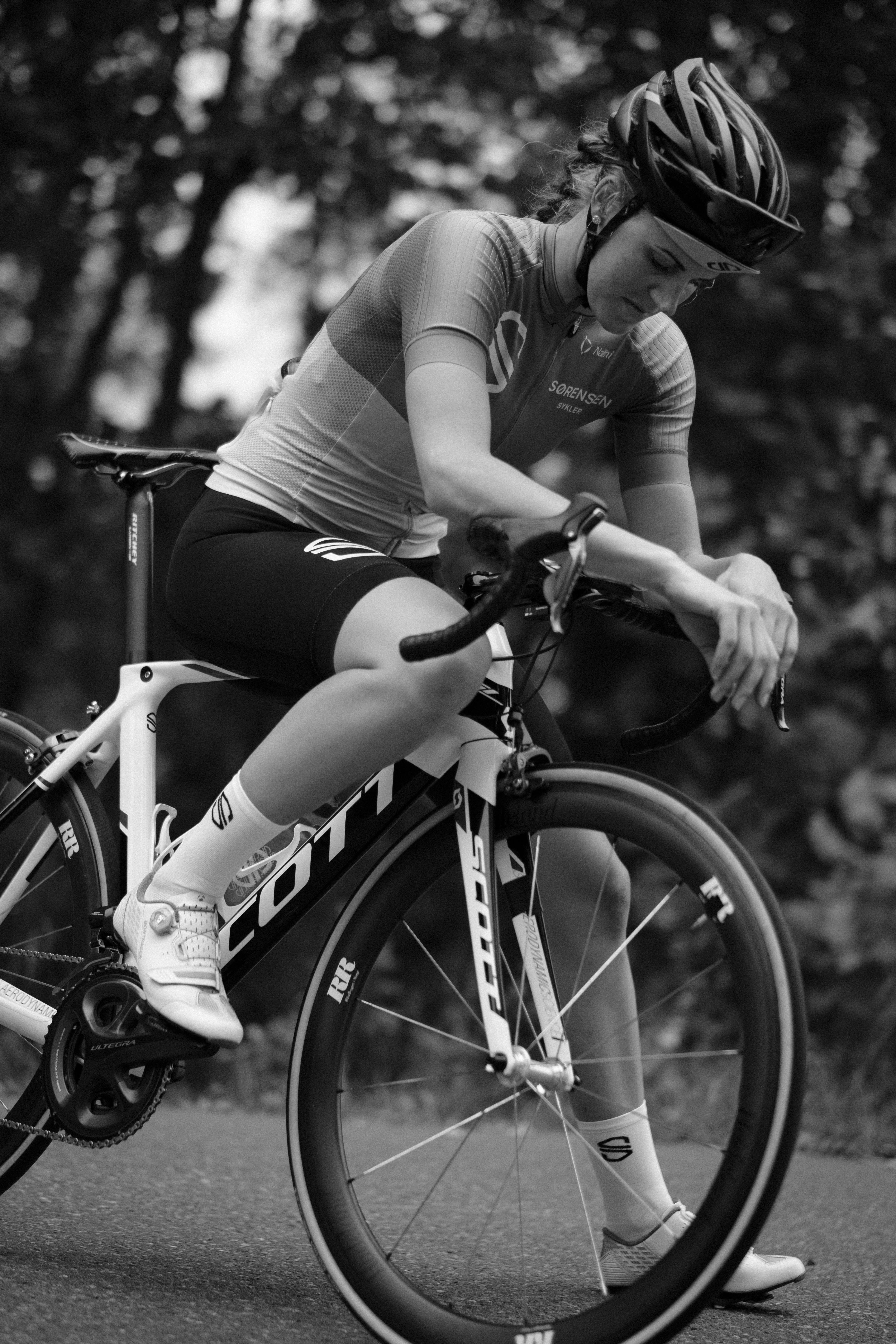
Kirsti Ruud 28 years old, from Oslo. Works as a coach and manager. Rapha ambassador. Rode actively from the age of 17 to 23 and was working towards becoming world champion (something she was very close to achieving) before being injured during a race in Belgium and forced to quit. Studied at the Norwegian School of Sports Sciences where she graduated in the spring of 2016. Is currently working on her comeback and have been included in the national team.
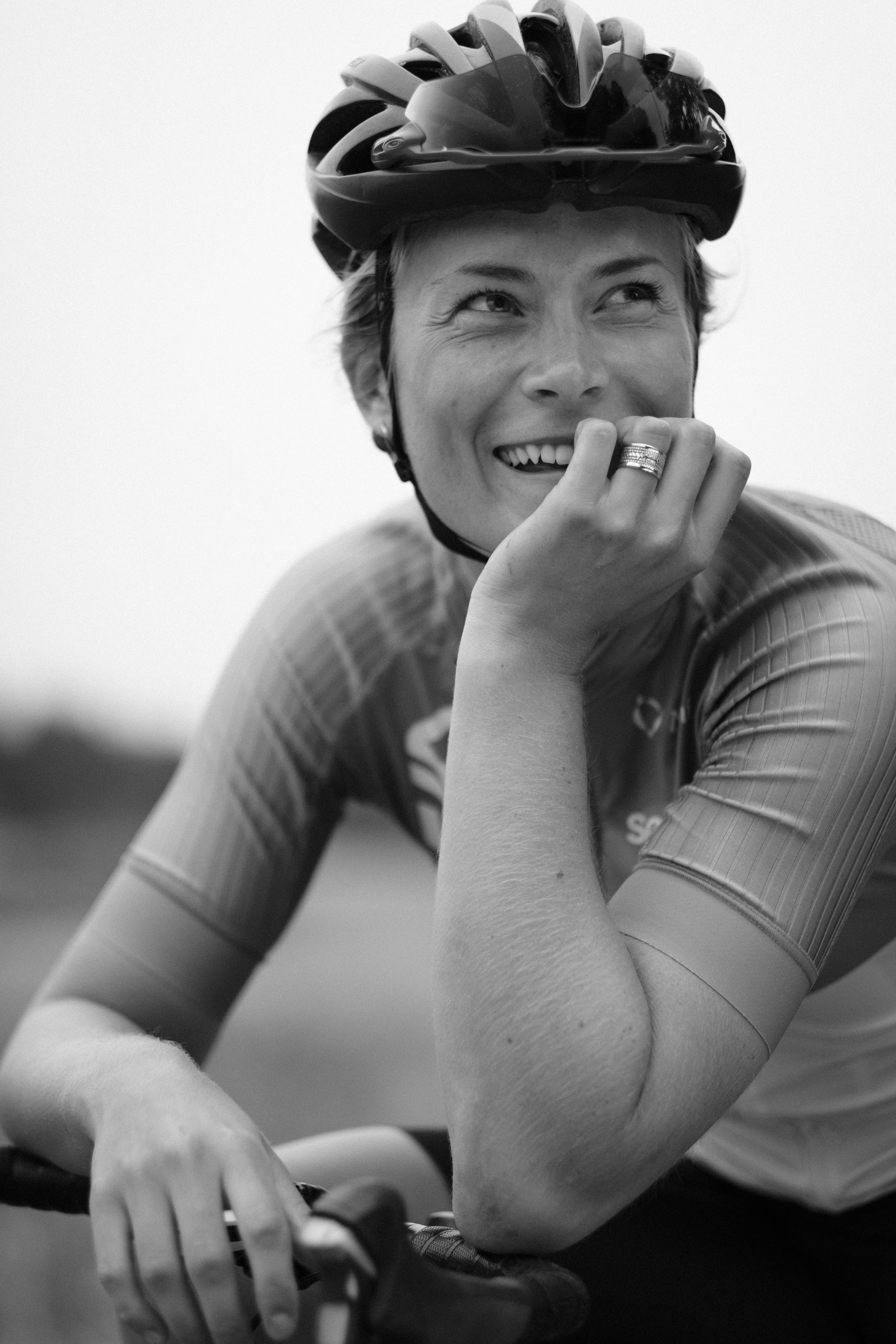
Tonje Øvervoll 30 years old, from Tromsø but has been living in Oslo for 11 years. Started riding in 2015 when she, after being introduced to cycling via her cycling-enthusiast partner, got bit by the cycling bug. Defines herself as a hobby-cyclist and do not participate in races and is not a part of a team. Works at National Geographic and Fox via TV Norge.
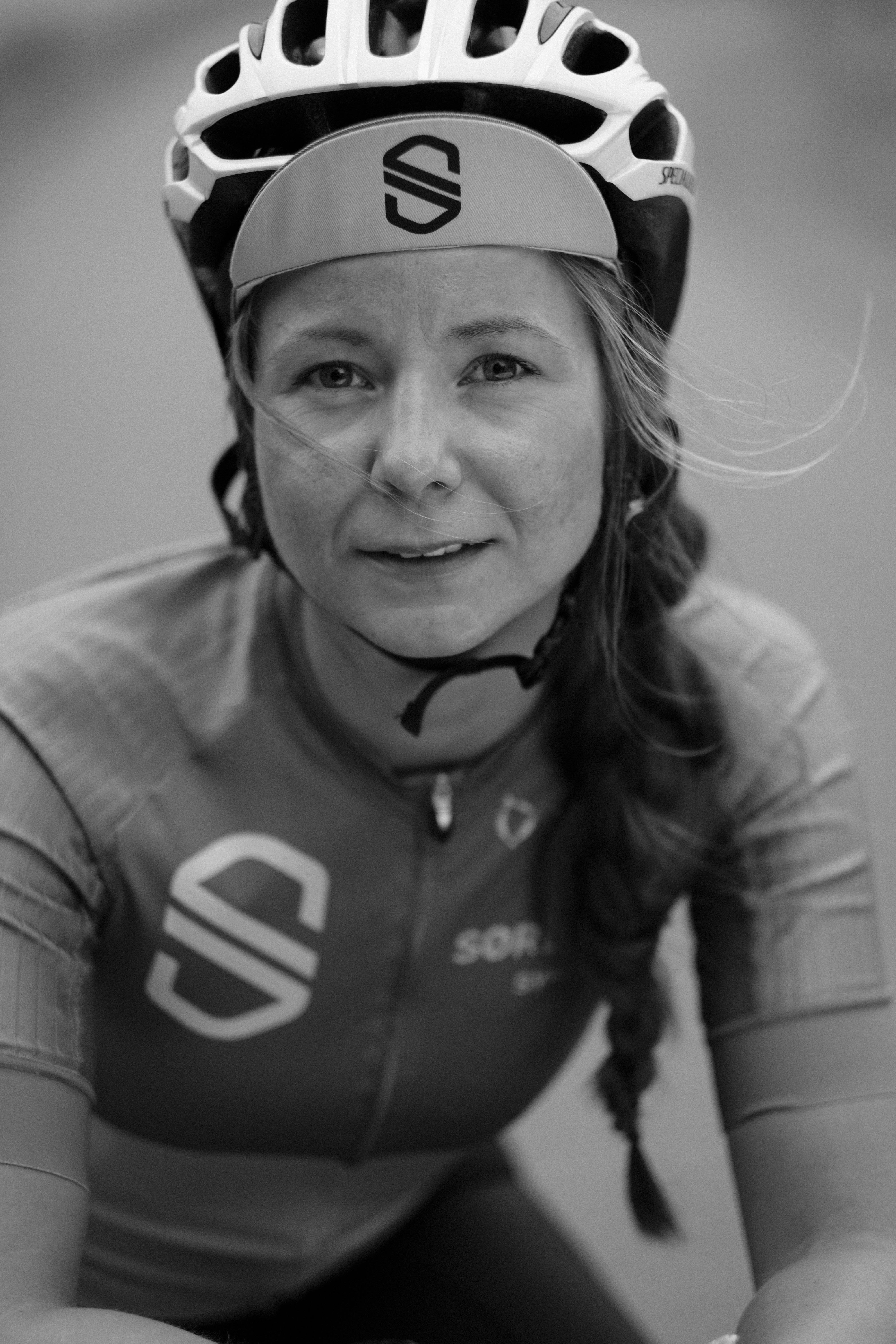
Line Marie Gulliksen 26 years old, from Oslo. Currently finishing her master’s degree in industrial engineering at the Norwegian univercity of live sciences, working as a project manager and Head of recruting in a company called Konsus. Started riding 4 years ago but have been struggling with illness for 2,5 seasons. This year has been a good one and she has been included on the national team this fall and tried international elite level for the first time.
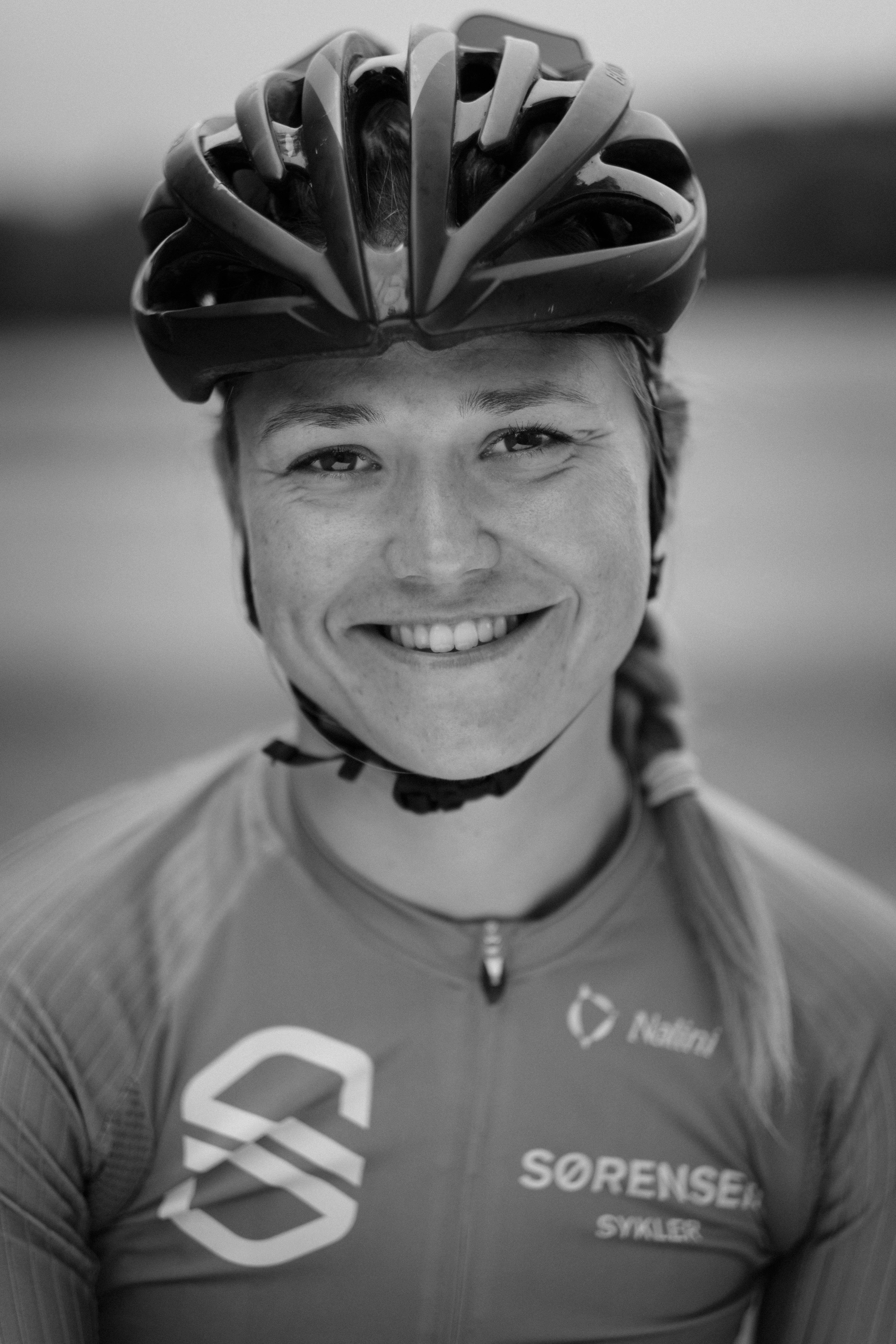
Why is it important to focus on women and cycling?
Kristin: Although it is a man-dominated sport, the scale of female riding is bigger than one might imagine. It is just that the community is very closed and slightly hidden. There are a lot of female cyclists that are very active and who commits and who cycles for working out, in addition to the ones who bikes to and from work and in the city, but who might be seeking for an community but who doesn’t really know where to look. I remember when I started riding in Oslo, and didn’t know whom to approach. We wanted to create a place for women who need an entry point in order to get to know other female cyclists. We have several riders who have joined us for a couple of rides and who have gotten to know other cyclists and who are now part of teams who enters races and competitions.
Tonje: Through our rides you get to know people on a social basis. That makes it easier to just pick up the phone and arrange a Sunday trip without it needing to be organized.
Kristin: I often notice that when I’m out riding and I meet other girls they are often alone or the only girl in a group of guys. It is not common that two girls are out riding together. The reason I think, is that there is not a good enough network of female riders or that they don’t want to be a part of an active team where you feel like you need to cycle Trondheim – Oslo to fit in. They want to stop for a coffee and do the things that you often hear the guys are doing. They go on coffee-trips and have a good time with lunch-stops. It’s not just serious business. When you are out practicing, but you still want to be social and to have a good time.
Tonje: Another aspect is that the media mostly covers men’s cycling. However they are starting to focus on it more. Rapha is one of the actors that have been focusing on women for quite some time, which is good. It is a target audience that more and more becomes aware of. From a business perspective one can say that women definitely are an affluent audience. We like to dress nice and we use a lot of money on it. When it comes to cycling the focus on good style is very widespread on the men’s side, but women are definitely there as well so there should be good opportunities for a broader coverage of female cyclists.
Kirsti: Everybody knows how to bike. Age and previous experience or level doesn’t matter. I myself am a washed-up gymnast, and that is how I got into cycling. I got hurt, and cycling was the only sport I could go on with. Up to a certain level cycling is a very gentle sport. Women will often stay in sports where they are having a good time and where their friends are. I have worked a lot as trainer, and I see very clearly that the sports that have a good community are the sports women continue with. If there is not a good community they quit. That is what’s so good about our rides. We base them on a good community. There are very few offers in Oslo, and a lot of women ride with the guys. Often you quickly get very good by doing that, but it also makes it hard for beginners to get started. It is important to start something for female beginners, so it is easier for them to get started.
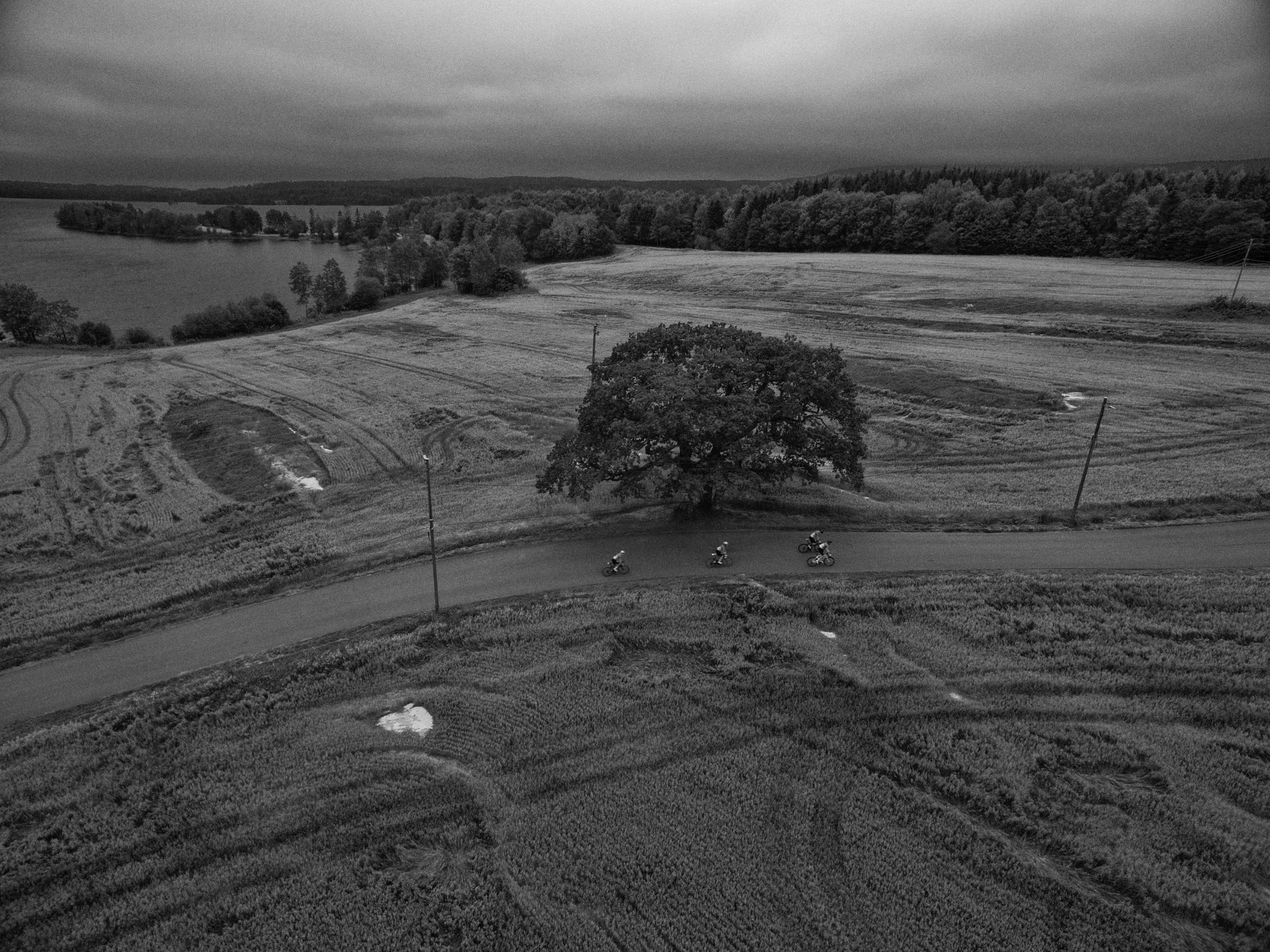
Why should more women start cycling?
Tonje: The feeling of freedom is amazing. I can’t run due do bad knees so for me cycling is a good alternative for getting out and exercise. Cycling is also getting out on the weekends for a long ride where you enjoy a good lunch and drink coffee. You are social and you get to ride at the same time. There are a lot of different needs in our group, which is good. Kirsti, Line and Kristin ride actively in rides and competitions, while I do this on more of a hobby basis. I kind of keep them grounded so we don’t go too fast.
Kristin: I started out as an amateur cyclist and went on rides and got to know other cyclists. After a while you just start riding more and more and you get to the point where you think, “why not just try a race”? I entered a race, discovered how fun it was and it kind of escalated from there. For me I think it was the Rapha Prestige that broke the code for me into the community. It was there I met Kirsti, who I later started riding with and who challenged me to enter the Norgescuppen. It is easier getting to know people when you are out riding. You are a bit forced into being social, and at the same time you get to exercise. And you experience something that ties you together.
Tonje: That is exactly what we try to create with our rides. It is a ride where you have a good time, and if any of the rides feel insecure we are there to help them. I bet there are a lot of people who are a bit afraid that they won’t be good or fast enough, but we do this in order to invite people to ride together. Nobody is left to ride by herself. We ride together (and the trip is also put to places without too much traffic, something beginners often worry about).
What’s your ultimate goal?
Kristin: That Søresens Piger becomes a natural gathering place for women who want to ride and that the community grows and that we can meet outside of the rides and go out for a cup of coffee or go for rides on own initiative, like the guys often do. What Oslo is missing is a bike café where you know that you can just pop in and met other cyclists that are out riding. We have some, like Supreme Rostworks, Rouleur and Oslovelo, but we want there to be an even stronger habit for people to meet up at a place.
Kirsti: The goal is to get people to meet at Sørensen Sykler every day, just to meet up with others and to see if someone wants to go for a ride at 6 pm. To create an environment like other cities have managed. Stockholm and San Francisco have managed to create good meeting spots. Rapha have been a pioneer to get that going, but our angle is to just look and learn.
Kristin: I believe that some of the reason for why it has worked so well in Stockholm and San Francisco is that the guys and the girls have gotten along better. In Oslo there is a very hardcore environment for men, while you in other cities have a lot more women joining in. After a race there is often a party, which contributes to gathering the gang. I feel like some of that is mission in Oslo. So that is our winter project this year: to keep in contact and to hold the interest. So girls, start cycling!